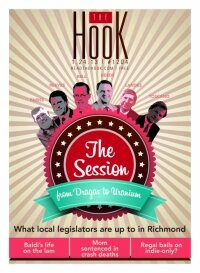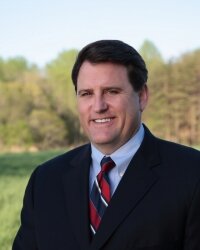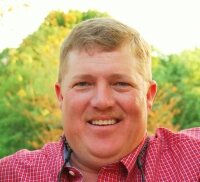The session: What local legislators are up to in Richmond
 The 2013 Session of the Virginia State Legislature kicked off on January 9, and if last year's focus was all about probing lady parts, this year's legislators will tangle over a variety of no less controversial issues. Some might say the most radioactive topic they'll tackle isn't guns, voting rights, or even a bill on uranium mining– it's the fate of UVA Rector Helen Dragas, who's tenaciously hung on to her post over the objections of alumni, student, and faculty groups. How will our reps vote? And for that matter, why are there so many of them?
The 2013 Session of the Virginia State Legislature kicked off on January 9, and if last year's focus was all about probing lady parts, this year's legislators will tangle over a variety of no less controversial issues. Some might say the most radioactive topic they'll tackle isn't guns, voting rights, or even a bill on uranium mining– it's the fate of UVA Rector Helen Dragas, who's tenaciously hung on to her post over the objections of alumni, student, and faculty groups. How will our reps vote? And for that matter, why are there so many of them?
Thanks to the magic of gerrymandering, Charlottesville and Albemarle have six people elected to represent this community in Richmond– although most of them don't reside here.
Delegate Matt Fariss lives in Rustburg. Delegate Steve Landes resides in Weyers Cave. State Senator Bryce Reeves' address is in Fredericksburg, and longtime state Senator Creigh Deeds hails from Bath County. Only delegates David Toscano and Rob Bell have Charlottesville addresses.
For the past dozen years, Deeds has carried legislation for a nonpartisan redistricting commission based on geographic proximity and population, not party strongholds. "There's nothing more important we can do than get rid of the current process where legislators pick their voters," says Deeds. "It creates polarization."
That was before Senate Republicans passed a surprise redistricting bill January 21– a day in which the evenly split Senate was down a Dem because Senator Henry Marsh, an African-American and longtime civil rights leader, had gone to Washington for President Barack Obama's inauguration on Martin Luther King Day. "We got bushwhacked," says Deeds.
The bill splits Deeds' district in the western part of the state into four pieces, and creates a new, African-American majority seat between Petersburg and Danville, taking part of Marsh's Richmond district as well.
Even Governor Bob McDonnell was unaware of the bombshell legislation from his own party. The state constitution required redistricting in 2011 and every 10 years after the census. Democrats have vowed to sue, should the House pass the bill and the governor sign it.
Meanwhile, it's a non-budget year, so the 46-day session provides less time than usual for legislators to not get things done.
And it's Republican McDonnell's last year of the single, four-year term Virginia allows its guvs– we count three bills this session to extend that to two terms– and the pressure is on for him to make his mark on the big issues looming, like transportation and education.
He's got a Republican-controlled House of Delegates and Republican Lieutenant Governor Bill Bolling as the tiebreaker in a 20-20 split Senate (though Bolling recently has gone rogue and is musing on an independent run for governor).
The problem for McDonnell: some of the legislation he supports has already been torpedoed, not by Democrats, but by his own party.
The governor struck out at the beginning of the session with his support of automatic restoration of voting rights for nonviolent felons rather than the more cumbersome current system of petitioning the governor. It's an issue popular with Democrats, but not so much so with Republicans, and it died in a House subcommittee.
"I do support the system in place," says Bell. "The governor has discretion, and I think it should be decided case by case, not automatically."
Landes, another Republican, says, "I think it didn't get out of subcommittee because the governor's done such a good job of restoring voting rights and restored more than anyone else. There's some thinking that if this is a broken process, why is it working so well?"
"It tells you how little weight McDonnell has in his own party," says Waldo Jaquith, creator of the General Assembly-tracking website Richmond Sunlight, who suggests McDonnell didn't work hard enough to get support. "For a governor to introduce a bill that fails in subcommittee," Jaquith says, "tells me he did no homework."
Jaquith says he suspects McDonnell is readying a challenge to Mark Warner for his U.S. Senate seat. With the restoration of voting rights effort, observes Jaquith, "He can tell centrist Democrats, 'I tried.'"
Here are some of the statewide issues and where our legislators stand on them– at least the ones who called us back. We'll also take a peek at what laws the guys (they're all guys) we send to Richmond are trying to get passed.
Transportation
McDonnell put forth a plan to deal with the state's crowded roads and crumbling infrastructure, which has been a top issue for, well, pretty much all of this millennium and longer, by cutting the 17-cent gas tax and upping the sales tax.
"I was tickled the governor presented a plan," says Democrat Deeds, who lost to McDonnell in both the gubernatorial and attorney general races. "If lightning can strike and bring people together, we can get things done."
Not that Deeds supports cutting the gas tax, 30 percent of which, he says, is paid by road-using nonresidents. "I think the sales tax is the most regressive," he says. "I don't support the details of his plan, but politics is about compromise. The most important thing is to to get things done. We need to think about what is going to work for the next generation."
Republican Bell says he's still reviewing the governor's plan and would support a revenue-neutral approach. "I'm concerned about the higher burden on taxpayers," he says.
"I'm still looking at his plan," says Landes. "I have concerns about where some of his funding is emanating from."
The June debacle
UVA Board of Visitors Rector Helen Dragas continues to garner headlines since she engineered the temporary ouster of UVA President Teresa Sullivan last summer. McDonnell's reappointment of her must be confirmed by the General Assembly– and usually a governor's appointments are rubber stamped.
Not this year. Local legislators Deeds, Landes, and Delegate David Toscano say they've been flooded with constituent calls demanding that Dragas be jettisoned.
On January 15, the Senate Privileges and Elections Committee okayed Dragas in a 12-3 vote. Bryce Reeves, eastern Albemarle's Senate rep, was one of the yay votes; Deeds was one of the lonely nays.
"I've heard from thousands of people," says Deeds. "Not one of those people showed up at the committee hearing. It was most disappointing. I felt like a running back with no blockers."
Dragas won 29-9 approval from the full Senate January 21. Next up: the House Privileges and Elections Committee, which meets every Friday at 9:30am and is open to public comment, although sometimes its weekly agenda is released only the day before, and the full House must confirm the rector.
Deeds is still hopeful– at least for structural changes in the governance of the UVA Board of Visitors. He and House Minority Leader Toscano are carrying two similar bills: one that would require the Virginia Commission on Higher Education Board Appointments to review any potential appointees before they are forwarded on to the governor, and another that mandates one person with higher-ed experience on the BoV, a non-voting faculty member, and a majority for a quorum. (Both of Toscano's bills have already died in committee.)
"I want to get past the personality problem," says Deeds. "What happened this summer shouldn't happen again."
He's critical of "the attitude of defeatism fostered by the media," and cites an article in the Cavalier Daily predicting Dragas' confirmation. "You've gotta believe," he says.
Landes, too, calls for a non-voting faculty member and a student on higher-ed boards, but says his bill is broader, not just applying to UVA but also covering other state universities and community colleges.
He is less optimistic on the Dragas question, however. "I think she will probably be confirmed," he says. "She's got two powerful friends– the governor and the senior senator in Congress, Mark Warner."
"I'm not voting for her," Landes adds.
Toscano also notes the lobbying on Dragas' behalf that will probably get her confirmed, but says in a WINA interview, "I think there's going to be a number of negative votes."
"I want to see what the [House Privileges and Elections] committee decides," says Bell.
Uranium mining
Bell is taking a wait-and-see position on another heated issue: whether Virginia should lift its ban on uranium mining, which has been in place since 1982. Pittsylvania County has the massive "Coles Hill" deposit, and the issue has bitterly divided Southside.
Proponents tout the jobs and economic benefits to the hard-hit region, and opponents fear groundwater contamination and whether radioactive waste can be safely managed.
"The local Farm Bureau supports lifting the ban," says Landes. "Statewide, the Farm Bureau does not support lifting it." Since the Hook spoke to Landes, his office believes the local bureau has joined the state position. The Virginia Farm Bureau did not return a reporter's calls.
Landes says he hasn't made up his mind, either. "It's an economic issue and a public safety issue," he says.
"As long as we have nuclear power," says Deeds, "I don't think this issue is going away." But Deeds says he plans to vote against lifting the ban. "I'm thinking we don't have the technology to protect public safety and groundwater," he says.
Voting
The presidential election is over, but voting is still an issue in Richmond– whether to make it easier or more rigorous. Virginia already requires identification at polling sites, but allows options for the ID, including a utility bill.
Perhaps because he's running for attorney general, Rob Bell is particularly interested in voter fraud at the polls, and five of his bills deal with that issue, including one that calls for government-issued photo IDs presented at registration and at the polls, something critics claim will disenfranchise poor voters. Bell's not convinced. "You can go to the DMV and we'll give you one for free," he says.
Bell also wants to make sure felons from other states don't slip in and vote, and one of his bills requires checking the list of registered voters against the Central Criminal Records Exchange.
Critics say fraudulent voting is a nonexistent problem. Bell points to an undercover video he saw on the Internet in which a campaign operative (Democratic Congressman Jim Moran's son, Patrick) tells a conservative group operative posing as a campaign volunteer, "What you need to do is forge an electric bill."
"It's big enough for us to have caught it on video," says Bell. "It's preposterous to think this only happened one time."
"Photo IDs are a way to suppress the vote," counters Deeds. "I think there were about five people in Albemarle who didn't have an ID and who voted provisional ballots." Deeds' bill to have each registrar send a new voter registration card to voters every year has already stalled in committee.
Democrat Deeds and Republican Landes are both carrying a bill that calls for a pilot "voter center" program that would consolidate the number of voting locations during primaries, a recommendation from the state's registrars, who say centralized locations would cut costs during low-turnout primaries.
"Some localities have very few people voting in primaries and they still have to open all the precincts," explains Deeds. "This is all about saving money."
Quirks of 2013
At this year's General Assembly, Richmond Sunlight's Jaquith has noticed a few trends. One is what he calls the "misleadingly named" Right to Farm Act. "It eliminates a locality's ability to zone," he says. "A farm can conduct any business it wants."
In the bill– carried by Delegate Scott Lingamfelter (R-Woodbridge) and co-patroned by Bell– art, literature, artifacts, furniture, food, beverages, and other items become agricultural operations, and counties are forbidden to interfere with these so-called farm ops.
On the other side of the aisle, Delegate Mark Keam has a similar bill that prohibits localities from interfering with winery events. That could be beneficial to wineries like Keswick Vineyards, whose neighbors complained about the noise emanating from weddings and sought a county ordinance.
"It's a pretty aggressive way to eliminate zoning for a certain class of land," says Jaquith. "Tellingly, the Virginia Farm Bureau came out against it," he says of the Lingamfelter bill.
Another trend he sees every year, he says, are multiple legislators writing nearly identical versions of bills on the same topic. For example, a few years ago, meth bills were big.
This year, he's counted at least 11 bills that increase the penalty for buying large quantities of cigarettes and taking them across the state border to sell.
"I'm not sure why," says Jaquith. "They just know that it’s going to pass, and they want to be able to take the credit."
A popular activity for legislators is writing commendations– bills for the sole purpose of lauding citizens or organizations. "A huge amount of resources goes to these commendations," says Jaquith, who wonders about the cost. "There are more of them than any other bills."
Landes commends the Western Albemarle boys tennis team, Bell takes note of the Albemarle High boys soccer team, and Toscano celebrates the lives of community activist Bunny Murray and local historian Preston Coiner.
Last year, the General Assembly drew national attention– much of it from comedy shows– for its passage of a requirement for what medical experts say is an unnecessary procedure, a transvaginal ultrasound for women seeking abortions, later amended to an abdominal ultrasound.
Some GOP leaders signaled they'd like to avoid such hot-button issues this year, which is an election year for the House of Delegates. Will social issues dominate again?
"Every year we take up bills related to social issues," says Bell, who blames some of the impression of controversy on the media.
"Part of that is based on what you guys choose to cover," says Bell to a reporter.
Along with local delegates Fariss and Landes, Bell voted January 14 against the election to the bench of openly gay Tracy Thorne-Begland, who was the only judicial nominee last year not to be confirmed by the House of Delegates. Despite the 28 all-Republican votes against him this year, Thorn-Begland was confirmed. The Hook was unable to catch up with local nay voters.
"It's the same-old, same-old with divisive social issues," says Jaquith. "Looking at the General Assembly, it's as if Obama lost his reelection. They are governing a state that's left of center and they're still holding firm."
Legislator snapshots
 Senator Creigh Deeds (D-Bath)
Senator Creigh Deeds (D-Bath)
25th Senate District
Deeds hefts the most legislation of local lawmakers with 28 bills, including five commendations.
One requires the Department of Game and Inland Fisheries to inventory the state's recreational waters, prompted by the arrest for trespassing of Jackson River angler fishermen because of a 250-year-old "crown grant" that gave ownership of the river bottom to the adjacent property owner. An inaccurate Game and Inland Fisheries map showed that part of the river as public land.
Others would allow Albemarle County to limit the number of inoperable vehicles kept on private properties, extend the allowed driving range of farm use vehicles from 30 to 50 miles, and put state-funded cops in elementary schools.
Already dead: His bill requiring criminal background checks on any gun sale, even those sold privately.
 Senator Bryce Reeves (R-Spotsylvania)
Senator Bryce Reeves (R-Spotsylvania)
17th Senate District
Reeves comes in second with 25 bills, and we'd like to ask him more about the bill that increases the number of Confederate graves maintained by the Ladies Confederate Memorial Association in Spotsylvania County from 300 to 749, or the one that calls for decals on the backs of school buses noting that they stop at railroad crossings, or the bold idea to allow advertising on school buses. But we didn't hear back from Senator Reeves.
Reeves has an election bill, too– a constitutional amendment that would preserve and protect the right to a secret ballot, not just when casting a vote at the polls, but also for employees deciding whether or not to form a union. That one died in committee.
His bill that restricts Temporary Assistance for Needy Families money from being used for booze, gambling, or adult entertainment did make it out of committee.
 Delegate Rob Bell (R-Albemarle)
Delegate Rob Bell (R-Albemarle)
58th District
Among Bell's 14 bills– besides the five aimed at preventing voter fraud– is the "Tebow" bill he carried last year, which allows the home-schooled to play in public school sports.
He's also concerned about human trafficking, and wants multi-jurisdiction grand juries to be able to investigate. "When they're moving people around the state, county lines are irrelevant," says Bell.
The bill that prohibits financial exploitation of the mentally incapacitated started with concern about the elderly, says Bell, and writing that bill was more difficult than he anticipated. "When Grandpa buys his grandkid a new car, that's one thing," says Bell. "If it's the fourth new car that the kid sells for cash... Drawing that line in advance was hard with caretakers. It's easier if it's a contractor charging $50,000 to put in a sidewalk."
His fellow local delegate, David Toscano, has a similar bill called the Virginia Vulnerable Adult Protection Act. Bell calls for a criminal penalty that would be equivalent to larceny; Toscano takes a civil-cause-of-action route for recovery of funds.
 Delegate David Toscano (D-Charlottesville)
Delegate David Toscano (D-Charlottesville)
57th District
The House Minority Leader, Toscano delivered the Democratic response following Governor McDonnell's state of the state address January 9.
He's a family law attorney, and he typically carries bills dealing with adoption and children. And, he says, "I've got a number of bills that deal with housekeeping," such as when school board raises go into effect.
Toscano whittled down the 47 bills he drafted to a manageable 15, which include three commendations. He touts the Virginia Vulnerable Adult Protection Act, and signed on with Creigh Deeds to reform redistricting.
 Delegate Steve Landes (R-Weyers Cave)
Delegate Steve Landes (R-Weyers Cave)
25th District
Ninth-termer Landes describes many of his 13 bills as fixing technicalities to existing laws.
His higher-ed bill that deals with governance and transparency on boards of visitors has made it out of committee, as has the one mandating non-voting faculty and student representation on boards of visitors of all universities and community colleges.
Another education bill he's carrying is a pilot program in which selected schools would be allowed waivers to history and science requirements in third-grade Standards of Learning in favor of more reading. "If you get to the third grade and you still can't read, it doesn't matter what the subject is," he says.
He's with Deeds on piloting vote centers for primaries– although he'd really like to have parties pay for primaries. "I haven't been able to get that through," he says.
 Delegate Matt Fariss (R-Rustburg)
Delegate Matt Fariss (R-Rustburg)
59th District
Fariss carries the fewest bills– 7 this year– and no commendations.
The co-owner of the Lynchburg Livestock Market wrote bills dealing with private security, agriculture, and consumer services.
He wants people whose drivers' licenses have been suspended for not paying fines and court costs to be able to get restricted licenses, since being unable to get to work makes paying those costs even more difficult. Another bill adds to the powers of multijurisdiction grand juries to look into money laundering.
And he carries a resolution that recognizes the existence of the United Cherokee Indian Tribe of Virginia, Incorporated, within the Commonwealth. Fariss did not return multiple calls from the Hook.
4 comments
The right to choose to buy a slave was once a "same old, same old" divisive social issue in Richmond also. Same exact anti-science was used to defend that right to choose: pretending you could remove the humanity and human rights of your victims by decree.
The "medical experts" making money from killing people ("cranioclast violence") are making less of that money now - as the ultrasounds are indeed having their desired effect of informing women of the reality of human development. And not all "medical experts" have abandoned Nuremberg, Geneva, and Helsinki.
Seannie old boy;
You're the same tin-foil-hat boy despite changing your pen name; must be the fluoridated water you drank when you was just a wee laddie.
If you're going to post under different names, you gotta change your diction...
The Unabomber got caught 'cuz he didn't...
Just staying one step ahead of the censors, skull crusher.. This is Charlottesville. Censorship and corruption is everywhere. My group wrote legislation in two states so far. We'll see if either makes it into the Virginia General Assembly this year. It aint over till it's over.. =o)
The bill to allow advertising on school buses is genius. I have often thought these vehicles would be a great medium for advertising and could help the whiney school districts who always ask for mo' money, mo' money, mo' money. Advertising on the outside for the captive drivers, and lots of ads inside for the smarmy little self-important chirren.
Now to the important stuff...Say a prayer for Ron Jeremy, who is recovering from life-threatening heart surgery in LA.
R.I.P.: John C. Holmes